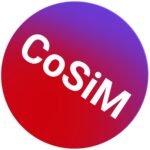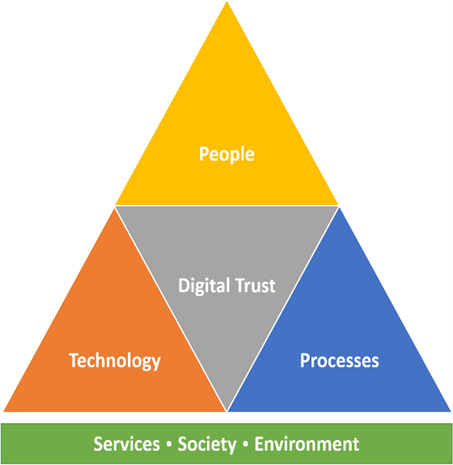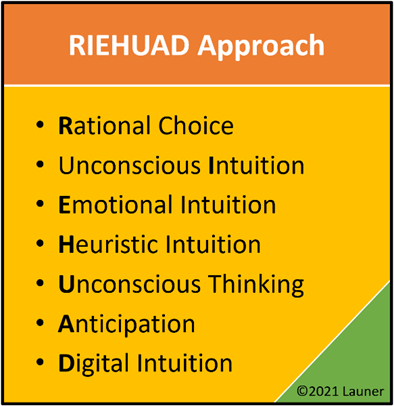7th International Conference on
Contemporary Studies in Management (CoSiM)
Call for Paper

We invite all researchers, scientists, scholars and graduate students for presenting at our CoSiM Conference and submitting an abstract for the Conference Proceeding. Invited are all Professors, Post Ph.D. and Ph.D., Master, and Bachelor-Students. The submission period is from now on.
Call for Paper
The CoSiM Conference 2023 invites papers on Digitalization, Intuitive Management, Online Education, Sustainability & Recycling, Intercultural Integration & Diversity. In particular, we are looking for:
Managing Digitalization
Digital Transformation, Artificial Intelligence, Big data, Blockchain, 5G Standard, Augmented & Virtual Reality, The Metaverse, Cyber Security, IOT, Edge Computing, Workflow & Automatization, Next generation Internet, Migration to IPv6, Smart Cities, Autonomous Driving, Cloud Computing, Machine Learning, Automated Subsurface, Remote Sensing, and Digital Trust. You might want to use our Digital Trust Approach:

Intuitive Management
Rational Decision Making, Intuitive Decision Making, Emotional Decision Making, Experienced-based Decision Making, Anticipation and Pre-cognition, Teachers Intuition. You might want to use our RHIEHUAD approach:

Managing Online Education
Managing Universities, Managing Vocational Schools, Excellence in Education, Quality Assurance and Control, Distance Learning, Innovative Teaching Approaches and Methods, Teacher Training, continuous Education, Electronic Learning, Educational Metaverse, Augmented and Virtual Reality, Artificial Intelligence and ChatGPT, Gamification and Game-based Learning, Mobile Learning and Bring Your Own Device (BYOD), Cloud Computing and Storage in Education, Robotics and Automation, Learning Analytics and Data-Driven Education, Internet of Things (IoT), Smart Devices, other Innovative Technologies, Micro Learning, Social Media, Online Learning Communities, Multimedia, Instructional Technology, Open Educational Resources (OER), Massive Open Online Courses (MOOCs), Sustainable Development, Teachers Intuition, Social Sciences, and Diversity
Sustainability
Economic, Ecologic & Social Sustainability, Corporate Social Responsibility, Corporate Governance, Cradle-to cradle, Recycling of Raw Materials, Development of BRICS economies, CO2 emissions by BRICS States in the future, CMIP6 Model of the IPCC, Climate Change, Regeneration, Ecological Food Supply, Water, Air & Earth Protection, Social Inequality. Ecological Landscape Urbanism, Ecological and sustainable urban design, Design tools for sustainable urban design, Ecological processes in urban ecosystems, Application of sustainability and resilient principles, High performance and energy efficient buildings, Sustainable city design, planning and management, High performance infrastructure, Monitoring and assessment tools: building regulation and performance evaluation, Climate responsive architecture: solar architecture and renewable energies, Daylight in buildings and nature ventilation, Green building technologies and integration, User-building-interaction and post occupancy evaluation, and Innovative and eco-friendly materials for the building envelope. Please embrace the United Nations’ 17 SDG.
Intercultural Integration & Diversity
Anti-Discrimination, Inclusion, Ethics, Integration of Refugees, International Migration, Refugees within a Country, Multi Culture, Inter Cultural Relations, Inter Cultural Communications, Transnationalism, Empowerment, Civil Society, Participation, Managing Diversity, Gender Pay Gap, and Equal Opportunities.
Pre-Discussion and Q&A for Abstract
Europe, Africa, and Americas
We offer a forum for discussions and Q&A Sessions during September 2023: every Wednesday from 7.00 PM German CET by Prof. Markus Launer (Germany) and Prof. Faith Cetin (Turkey) from the Institut für gemeinnützige Dienstleistungen (Non-Profit Service Institute). Zoom Meeting Link:
Meeting-ID: 876 9702 1332, Kenncode: 661651
Asia and Australia
A discussion forum wioll be offered by Silliman University as well. TBC.
Formats & Submission Guidelines
The abstracts are expected to present the problem status, purpose, method, findings, conclusion, and recommendations of the study. At least three keywords related to the study should be added at the end of the abstract. Please list all your references. We accept
- Full papers (research papers): 6-10 pages up to 7000 words
- Abstract: minimum 1000 words
Papers expected in this Workshop are diverse and open. It can be theoretical, exploratory, experimental, quantitative, or qualitative analysis of new ideas and concepts, current practice, debates and controversies. All papers should follow APA formatting. All submitted abstracts should be in proper English. While preparing the proceedings, the participants must follow the format guidelines, and a template is provided below. Please read the guidelines carefully, all formatting specifications are explained in this document, so you can prepare your manuscripts accordingly. Failure to comply with these guidelines may result in your manuscript not being published. Please see formatting specifications at the end of this page.
Registration & Submission
For registration, sending an abstract and/or full paper, please use only the attached forms. Thank you.
Abstract Submission and Registration
Please submit a paper by October 1, 2023 via our Portal.
Call for Paper extended to October 30, 2023
All abstracts and full papers as well as the presentations can be published exclusively by the Institute of Non-Profit Services gGmbH.
Review Process & Review Team
All papers will go through a double blind review process during October 2023. Therefore, we will remove all your identifications before the review. Please allow us four (4) weeks for the review. You will receive notice of acceptance beginning of November 2023. The acceptance or rejection notification along with the review comments will be sent to authors via email. Revisions (accept with minor revision and accept with major revision) should be made before the Conference and sent back for review again until meet the accepted standard. The revised articles will be reviewed again by the reviewers.
Papers found to commit plagiarism will be rejected directly. The ethical statement for German Research applies.

The Review Team will promote
- Best Abstract Award
- Best Paper Award
- Best Presentation Award
- Best Session Chair Award
Ethics & Malpractice
The CoSiM Conference is a peer-reviewed conference committed to ensuring the highest standards of publication ethics. All parties involved in the act of publishing (editors, authors, and reviewers) have to agree upon standards of ethical behavior.
Decisions will be made on the basis of the abstract’s merit and that the author’s race, gender, religious or political beliefs, ethnicity, or citizenship are not considered. Therefore, information concerning a submitted abstract should only be revealed to the corresponding author, reviewers, or the editorial board members.
Authors, reviewers and editors are expected to carefully follow the research ethics and acknowledge the authenticity of the respective submissions.
Online Presentation
Only Participants submitting an abstract or full paper are eligible to present. Please, all authors of the abstract or full paper should be present and present. Please prepare a PowerPoint presentation of about 20 minutes to participants from all over the world with different backgrounds. We hope to receive your presentation upfront for display by November 14, 2022 in the form PowerPoint (maybe including a 3-5 minutes video) by eMail. Please concentrate in your presentation on the results of your study and limit the theoretical background. The participants will have to download and install Zoom application before the presentation. Please be online 30 minutes before your presentation and signal your presence to the Session Chairs and Moderators.
The presentations will not be stored and not published, however, the recorded video presentation might be published full or in parts in our YouTube Channel. During the conference, the virtual presentations will be broadcasted on Facebook Live. The Conference will provide attendance of researchers from all over the world.
YouTube Channel https://www.youtube.com/channel/UC3-5h-llDg6p-r82q3WqeoQ
Facebook https://www.facebook.com/ProfMarkusLauner/
Video Publication on E-Learning Platform
Please acknowledge that all presentations will be live online as well as recorded and stored in an archive of the YouTube Channel of Markus Launer. We may use parts of your presentation for additional videos.
Conference Proceeding
We will publish all accepted and presented contributions in a conference proceeding as a Working Paper with ISIN number. For publication afterwards in a book or journal, you need to change the wording and enrich the content. The Conference Proceedings of our former Conferences you find here.
Please see also
Formatting Specifications
- Please read these guidelines carefully, all formatting specifications are explained in this document, so you can prepare your manuscripts accordingly. Failure to comply with these guidelines may result your manuscript not being published.
- Please use Microsoft Word to create your manuscript. If you use any other word processor, please make sure to format all requirements as outlined below.
- All papers are assumed to be original and not under consideration for publication elsewhere.
- The paper must be written in the third person and in English. Authors should use straightforward declarative sentences, making every effort to help readers understand the concepts presented. Please explain any acronyms or abbreviations clearly. All papers must be copy edited and must be free of grammatical and spelling errors.
- Papers may be structured as follows: abstract (max 250 words in full paper, followed by max 6 keywords); introduction; literature review; methods; findings; conclusions, implications, and further research; and references.
- Full paper should be no more than 17 pages (including reference list and acknowledgements and appendices if applicable).
- Please use A4 size.
- Please use APA (6th edition) style for in-text citations, tables (if any), figures (if any), and reference list (do not take italics into consideration).
- Examples of references:
I. Journal article, one author (include Digital Object Identifier [DOI] at end of citation if one is assigned).
Fisher, J. C. (1993). A framework for describing developmental change among older adults. Adult Education Quarterly, 3, 76-89.
II. Book, revised edition
Knowles, M. S. (1980). The modern practice of adult education: From pedagogy to andragogy (Rev. ed.). Chicago, IL: Follett.
III. Edited book
Galbraith, M. W. (Ed.). (2004). Adult learning methods. Malabar, FL: Krieger.
IV. Reference to article or chapter in an edited book
Lawson, K. H. (1991). Philosophical foundations. In J. M. Peters, P. Jarvis, & Associates (Eds.), Adult education: Evolution and achievements in a developing field of study (pp. 282-300). San Francisco, CA: Jossey-Bass.
V.Reference to issue in New Directions series
Sissel, P. A. (Ed.). (1996). A community-based approach to literacy programs: Taking learners lives into account. New Directions for Adult and Continuing Education, no. 70. San Francisco, CA: Jossey-Bass.
VI. Reference to chapter in one of the New Directions book Ng, J. (2007). Campus politics and the challenges of international education in an urban community college district. In E. J. Valeau & R. L. Raby (Eds.), International reform efforts and challenges in community colleges (pp. 83-88). New Directions for Community Colleges, no. 138. San Francisco, CA: Jossey-Bass.
VII. Dissertation obtained from a university, or abstracted in Dissertation Abstracts International. (Example: Order # is AAT3052640).
Davis, M., III. (2002). The effects of socioeconomic status, gender, and age on reported performance in the contemporary social roles of parent, spouse/parent, and worker. Dissertation Abstracts International: Section A. Humanities and Social Sciences, 63(5), 1667. If retrieved from a database, include Accession or Order number.
VIII. Report of a private organization or corporate author
Kennesaw State University. (2006). Student survey on internationalization. In C. L. Olson, M. F. Green, & B. A. Hill (Eds.), A handbook for advancing comprehensive internationalization: What institutions can do and what students should learn (pp. 137-140). Washington, DC: American Council on Education.
IX. Paper presented at a conference
Cameron, C., Rockhill, K., & Wright, J. (1978, October). Certification: An examination of the issues by and for adult educators. Paper presented at annual meeting of the Commission of Professors of Adult Education, San Antonio, Texas.
X. Paper presented at a conference, published in the proceedings
James, W. B., Witte, J. E., Abney, H. M., Jr., Kirkman, M. S., Dye, L., Hargiss, K., & Wall, N. (1996). Revision and validation of Havighurst’s social role research. In H. Reno & M. M. Witte (Eds.), 37th Annual Adult Education Research Conference proceedings (pp. 351-356). Tampa, FL: University of South Florida, Adult and Vocational Education.
XI. Entire website example:
DealOz is a great site for rare and out-of-print books (http://dealoz.com)
XII. Website with no author:
Two International Adult and Continuing Education Hall of Fame Inductions in 2008. (2008). Retrieved from http://www.halloffame.outreadch.ou.edu
Website with no page numbers: you can include any of the following in the text to cite the quotation (from p. 120 of the Publication Manual): 1. A paragraph number, if provided; otherwise count paragraphs down from the beginning of the document. 2. Obvious heading plus the paragraph number within that section.
Website with no date and no author, text citation would include first couple words from title and “n.d.” for no date (e.g., para. 5, “Style List,” n.d.)
XIII. Personal communication – referenced ONLY in text not in reference list.
- The rest of the formatting steps below will help you format your paper according to our formatting requirements.
Title of the Paper
John Doe1 , Name of Second Author2 , and Name of Third Author3
1,3 Name of the University, Institute, College, Country
2 Name of the University Institute, College, Country
1.Introduction
2.Literature Review
3.Method
4.Results
5.Discussion
6.Conclusions
Key Words:
References

